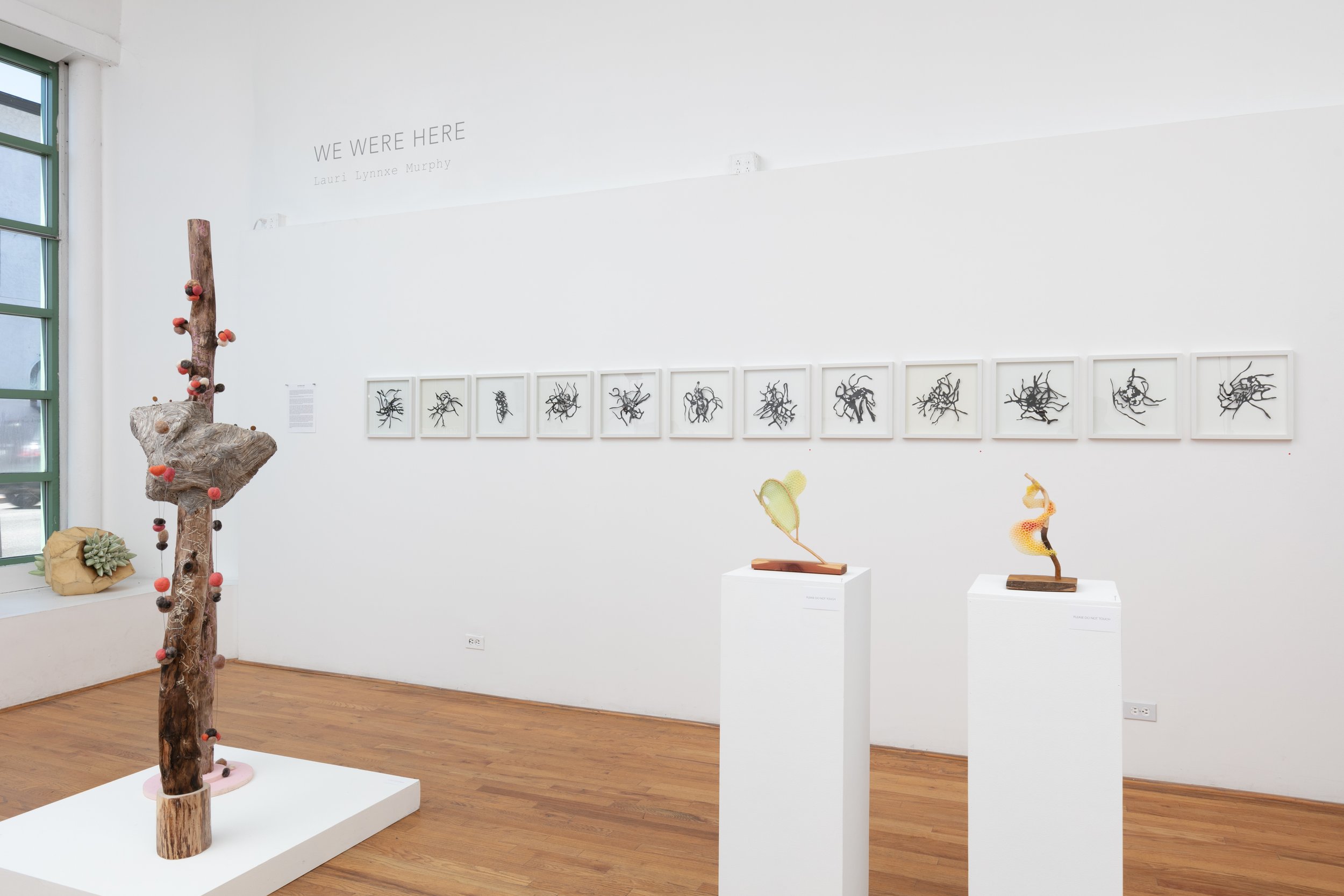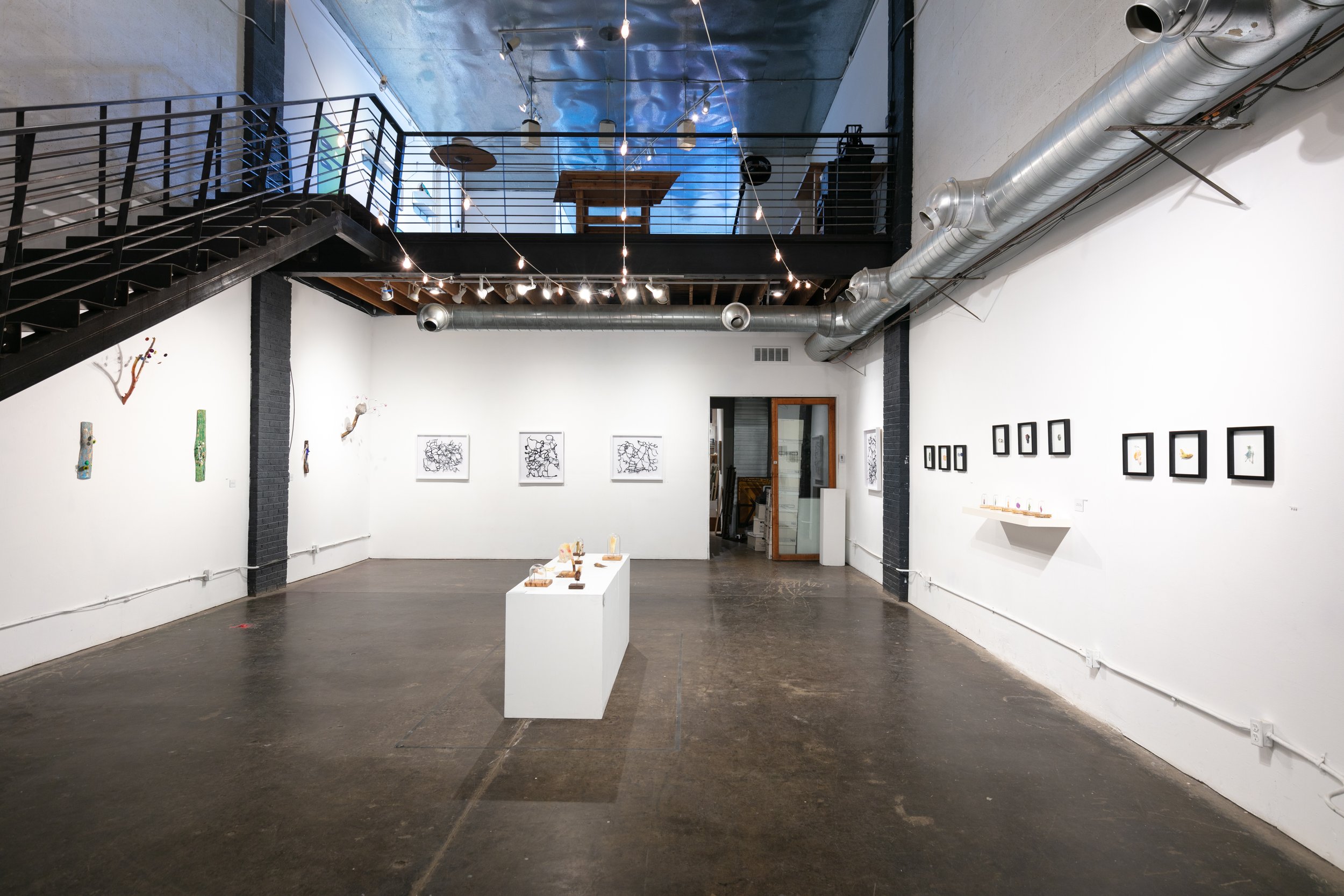We Were Here
at Mai Wyn Fine Art & Recreative Gallery
Denver, CO
September 6 - 28, 2019
Photos by Wes Magyar
Statement
Anyone older than 30 who went on family road trips probably remembers the constellation of splats on the windshield and half-smashed bugs stuck in the grill of the car. If you’ve gone on any road trips lately, you may have noticed a cleaner windshield, but that apparent benefit hides a terrifying reality: insects are facing an apocalypse. In April of 2019, a major study warned that 40% of insect species face near-term extinction. Another researcher who has gathered bugs for years estimates upwards of 70%. For perspective: insects are two thirds of the species on our planet.
Insects are the functional base of most ecosystems. The danger of losing honeybees is widely known for their pollination of most of what we eat, but nature has its own food pyramid. Most humans, at the top of the food chain due to thumbs and brains that give us a terrifying advantage, operate mostly unaware of that food chain, confident that food comes from the grocery store in brightly labeled boxes. But insects are important not only as a food source for other animals and fish, but as the creators of soil plant-based food grows in as they break down organic matter, as the cleanup crews for carrion, and with many species, simply as bringers of joy and beauty, though only when they appeal aesthetically to humans. When they do not, or invade our spaces, we see them as a disgusting scourge. But like it or not, our own survival clearly is intertwined with theirs.
For the past 10 years, I’ve been working with insects in danger of disappearing. It started with concerns about Colony Collapse Disorder in bees, leading to me starting hives and learning everything I could about the bees’ ways in order to try to collaborate with them, carefully manipulating their behavior and patterns in the service of making art. When I became allergic to their stings, I found snails and their iridescent slime trails, who face extinction due to climate change, pollution, and ocean acidification. And on hikes and gathering wood for campfires, I found the trails that fascinated me as a child to the point that I would do rubbings of them -- the meandering paths on the surface of the wood carved by Pine and Spruce Beetles. In the beetles, I can explore two future extinctions at once, as climate change has exploded the population of beetles and decimated over a fifth of Colorado’s forests; the two species are engaged in a mutually assured destruction. I have pursued all of this work simultaneously for the past several years, and this is the first time all of these bodies of work have appeared together.
This is art predicated on failure. And perhaps to some degree, this is symbolically fitting, as it reflects our failure as a species to properly steward our home, placing these small collaborators in danger in the first place. Everything I do is trial and error at the beginning, but I approach my work like a scientist - performing experiments, and recording the results, which are only occasionally artwork until I learn how to work with the animals or organic materials I’ve chosen. I am handing over certain decisions to an element of chance, and yet, by creating protocols and with careful observation, I can predetermine and build in elements that I wish to see express themselves...color, irregular cells, shape. Ethics are of the utmost importance to me however, and I am careful to never cause harm and always disrupt their lives as little as possible.
My main goal, in aestheticizing these products of insects, is to create in people a sense of biophilia, and activate our innate tendency to seek connection with nature. If I can use beauty as a way to make people love and care for these small, rarely noticed creatures, perhaps they, and we, have a better chance at survival. I am preserving that which is seldom seen and making the invisible visible, if only that perhaps, we might appreciate the things we do not notice in the natural world, and grow appreciation for the beauty of this detritus.











